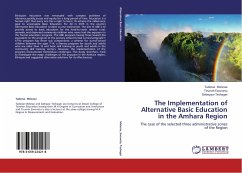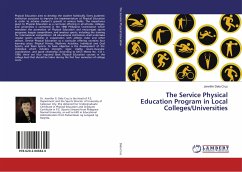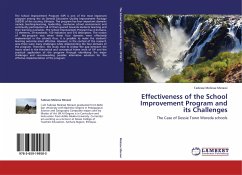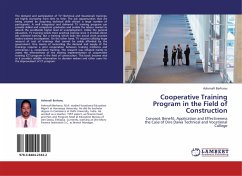
The Management of Alternative Basic Education Program
Assisted by GO and NGOs in Amhara Region
Versandkostenfrei!
Versandfertig in 6-10 Tagen
32,99 €
inkl. MwSt.

PAYBACK Punkte
16 °P sammeln!
It is universally true that potential citzens are cultivated when quality educatiön is provided for the learners be formal non-formal educational programme. In this regard, besides to many factors, the writer of this book war highly initiated in studying how the alternative basic education (ABE) as non-formal educational program is managed. That is, how planning, organization, staffing, monitoring and evaluation of the ABE program are implemented by different providers of the program. This book, therefore, helps program planners, curriculum designers, school leaderships, program evaluators an...
It is universally true that potential citzens are cultivated when quality educatiön is provided for the learners be formal non-formal educational programme. In this regard, besides to many factors, the writer of this book war highly initiated in studying how the alternative basic education (ABE) as non-formal educational program is managed. That is, how planning, organization, staffing, monitoring and evaluation of the ABE program are implemented by different providers of the program. This book, therefore, helps program planners, curriculum designers, school leaderships, program evaluators and others to consider where the gap lies for the feasibility of the non-formal educational program.












